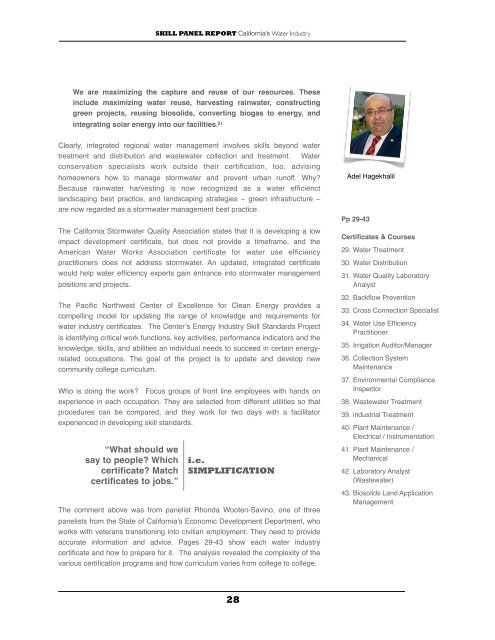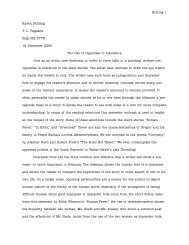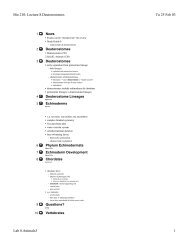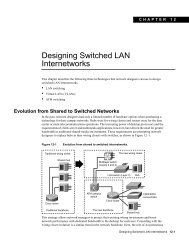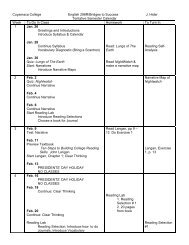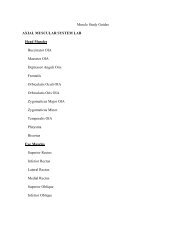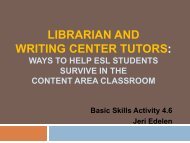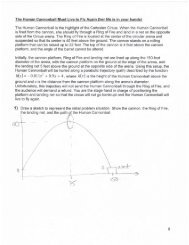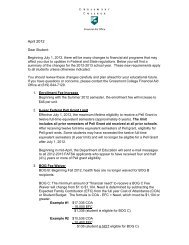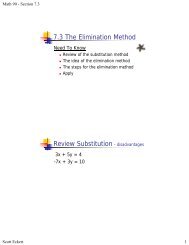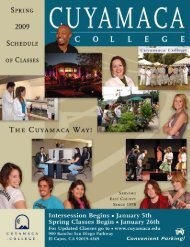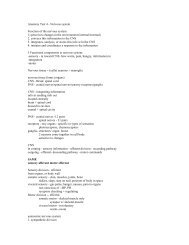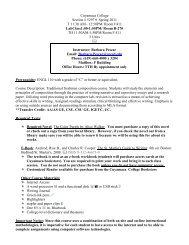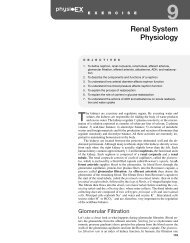SKILL PANEL REPORT California's Water Industry - Cuyamaca ...
SKILL PANEL REPORT California's Water Industry - Cuyamaca ...
SKILL PANEL REPORT California's Water Industry - Cuyamaca ...
You also want an ePaper? Increase the reach of your titles
YUMPU automatically turns print PDFs into web optimized ePapers that Google loves.
<strong>SKILL</strong> <strong>PANEL</strong> <strong>REPORT</strong> California’s <strong>Water</strong> <strong>Industry</strong>We are maximizing the capture and reuse of our resources. Theseinclude maximizing water reuse, harvesting rainwater, constructinggreen projects, reusing biosolids, converting biogas to energy, andintegrating solar energy into our facilities. 21Clearly, integrated regional water management involves skills beyond watertreatment and distribution and wastewater collection and treatment. <strong>Water</strong>conservation specialists work outside their certification, too, advisinghomeowners how to manage stormwater and prevent urban runoff. Why?Because rainwater harvesting is now recognized as a water efficienctlandscaping best practice, and landscaping strategies – green infrastructure –are now regarded as a stormwater management best practice.The California Stormwater Quality Association states that it is developing a lowimpact development certificate, but does not provide a timeframe, and theAmerican <strong>Water</strong> Works Association certificate for water use efficiencypractitioners does not address stormwater. An updated, integrated certificatewould help water efficiency experts gain entrance into stormwater managementpositions and projects.The Pacific Northwest Center of Excellence for Clean Energy provides acompelling model for updating the range of knowledge and requirements forwater industry certificates. The Center’s Energy <strong>Industry</strong> Skill Standards Projectis identifying critical work functions, key activities, performance indicators and theknowledge, skills, and abilities an individual needs to succeed in certain energyrelatedoccupations. The goal of the project is to update and develop newcommunity college curriculum.Who is doing the work? Focus groups of front line employees with hands onexperience in each occupation. They are selected from different utilities so thatprocedures can be compared, and they work for two days with a facilitatorexperienced in developing skill standards.“What should wesay to people? Whichcertificate? Matchcertificates to jobs.”i.e.SIMPLIFICATIONThe comment above was from panelist Rhonda Wooten-Savino, one of threepanelists from the State of California’s Economic Development Department, whoworks with veterans transitioning into civilian employment. They need to provideaccurate information and advice. Pages 29-43 show each water industrycertificate and how to prepare for it. The analysis revealed the complexity of thevarious certification programs and how curriculum varies from college to college.Adel HagekhalilPp 29-43Certificates & Courses29. <strong>Water</strong> Treatment30. <strong>Water</strong> Distribution31. <strong>Water</strong> Quality LaboratoryAnalyst32. Backflow Prevention33. Cross Connection Specialist34. <strong>Water</strong> Use EfficiencyPractitioner35. Irrigation Auditor/Manager36. Collection SystemMaintenance37. Environmental ComplianceInspector38. Wastewater Treatment39. industrial Treatment40. Plant Maintenance /Electrical / Instrumentation41. Plant Maintenance /Mechanical42. Laboratory Analyst(Wastewater)43. Biosolids Land ApplicationManagement28


